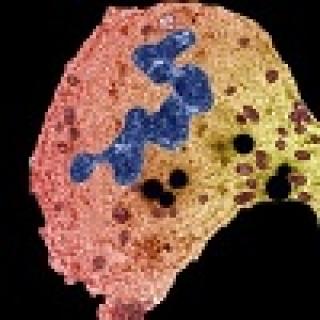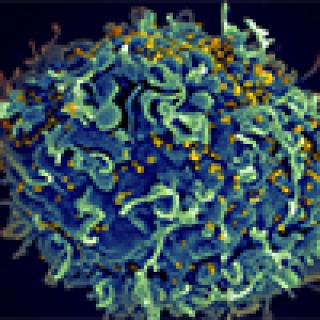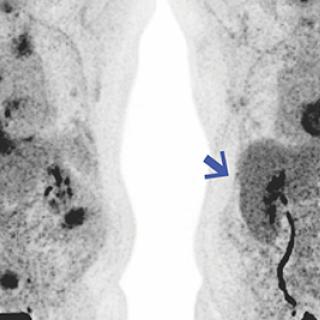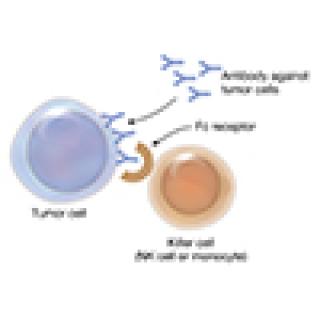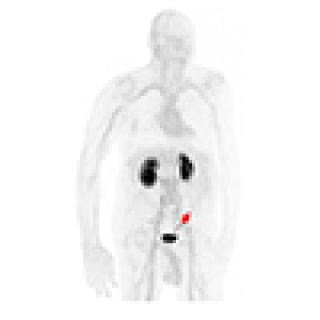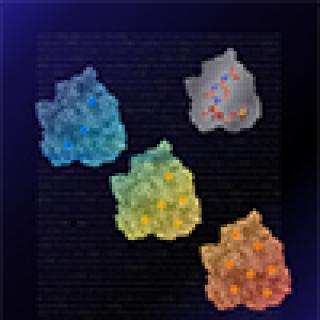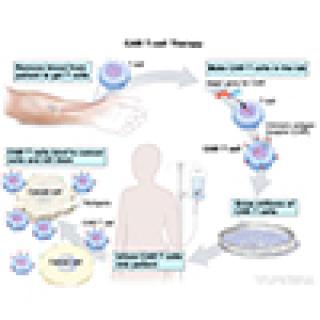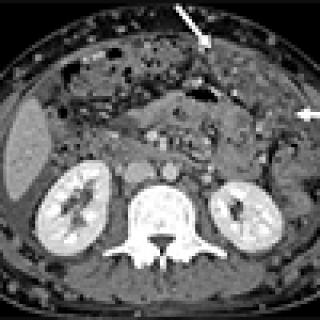News and Events
Proteins Released from the Nuclei of Dying Cancer Cells Promote Tumor Growth
Material released from dying cancer cells, known as tumor cell nuclear expulsion products (TuNEPs), contains specific proteins that promote the growth of neighboring cancer cells. Targeting these proteins could lead to new treatments that hinder cancer spread and improve patient outcomes.
Read MoreIn Memoriam: Gilbert Howlett Smith, Ph.D.
The Center for Cancer Research mourns the recent death of colleague and friend Gilbert Howlett Smith, Ph.D. He was a valued and much liked member of the NCI community since 1965.
Read MoreSarcoma Awareness Month
To recognize Sarcoma Awareness Month this July, we are highlighting our researchers who are advancing research discovery in this field. Learn more...
Read MoreTrial shows aggressive cancer treatment is appropriate for people with HIV-associated primary central nervous system lymphoma
New research from CCR scientists shows that chemoimmunotherapy with antiretroviral therapy can lead to long-lasting remissions of HIV-associated primary central nervous system lymphoma without compromising neurocognitive function.
Read MoreStudy finds drug beneficial for shrinking mesothelioma tumors
A drug that is designed to boost the immune system against mesothelioma, when combined with immunotherapy, was found to be beneficial in a small study involving ten patients. The results suggest that the drug LMB-100 could prolong the life of some patients with advanced disease.
Read MoreClinical trial studies combination therapy for certain mature T-cell cancers that have not responded to treatment
Adult T-cell leukemia/lymphoma (ATLL) and mycosis fungoides/Sézary syndrome (MF/SS) are fast-growing cancers that form in T cells, a type of white blood cell that is key to the body’s immune response. A clinical trial is being conducted at the NIH Clinical Center to test a combination therapy for these rare cancers.
Read MoreClinical trial tests targeted radioactive agent as therapy for metastatic prostate cancer
Prostate-specific membrane antigen (PSMA) is present on the surface of all prostate cancer cells but is highly expressed on cells of castration-resistant prostate cancer (mCRPC). Frank Lin, M.D., Investigator in the the Molecular Imaging Program, is leading NCI’s effort to study the effect of targeted treatment with a radioactive agent to test dosing and overall effect for these patients.
Read MoreA Conversation with Christina Annunziata, M.D., Ph.D.
Christina Annunziata, M.D., Ph.D., is an Investigator in the Women’s Malignancies Branch at the Center for Cancer Research. She has spent most of her career studying the molecular underpinnings of ovarian cancer with the goal of discovering novel treatments. In our Q&A, Dr. Annunziata discusses her personal and professional milestones as well as new directions for her research.
Read MoreNew chemical sequencing reaction helps unravel the role of an ancient RNA modification
CCR researchers and collaborators have developed a novel chemical reaction that enables the quantitative mapping of an ancient and enigmatic RNA modification that is found in nearly all organisms on earth, providing fundamental insights that are potentially important for tumor biology and cancer treatment.
Read MoreClinical trial studies CAR T-cell therapy for relapsed/refractory acute myeloid leukemia
Acute myeloid leukemia (AML) is a cancer of the blood and bone marrow, the soft inner part of long bones where new blood cells are made. With AML, bone marrow cells don't grow the way they're supposed to. Instead, immature bone marrow cells grow uncontrollably and build up in the body. This study is testing the effect of chimeric antigen receptor T cells (CAR T cells) for children and young adults.
Read MoreNew clinical trial evaluates chemotherapy delivery for stomach cancer
A clinical trial testing chemotherapy delivery for stomach cancer that has spread to the lining of abdominal cavity is underway at the NIH Clinical Center. Investigators are evaluating how this delivery may improve outcomes for patients with this rare condition.
Read More

